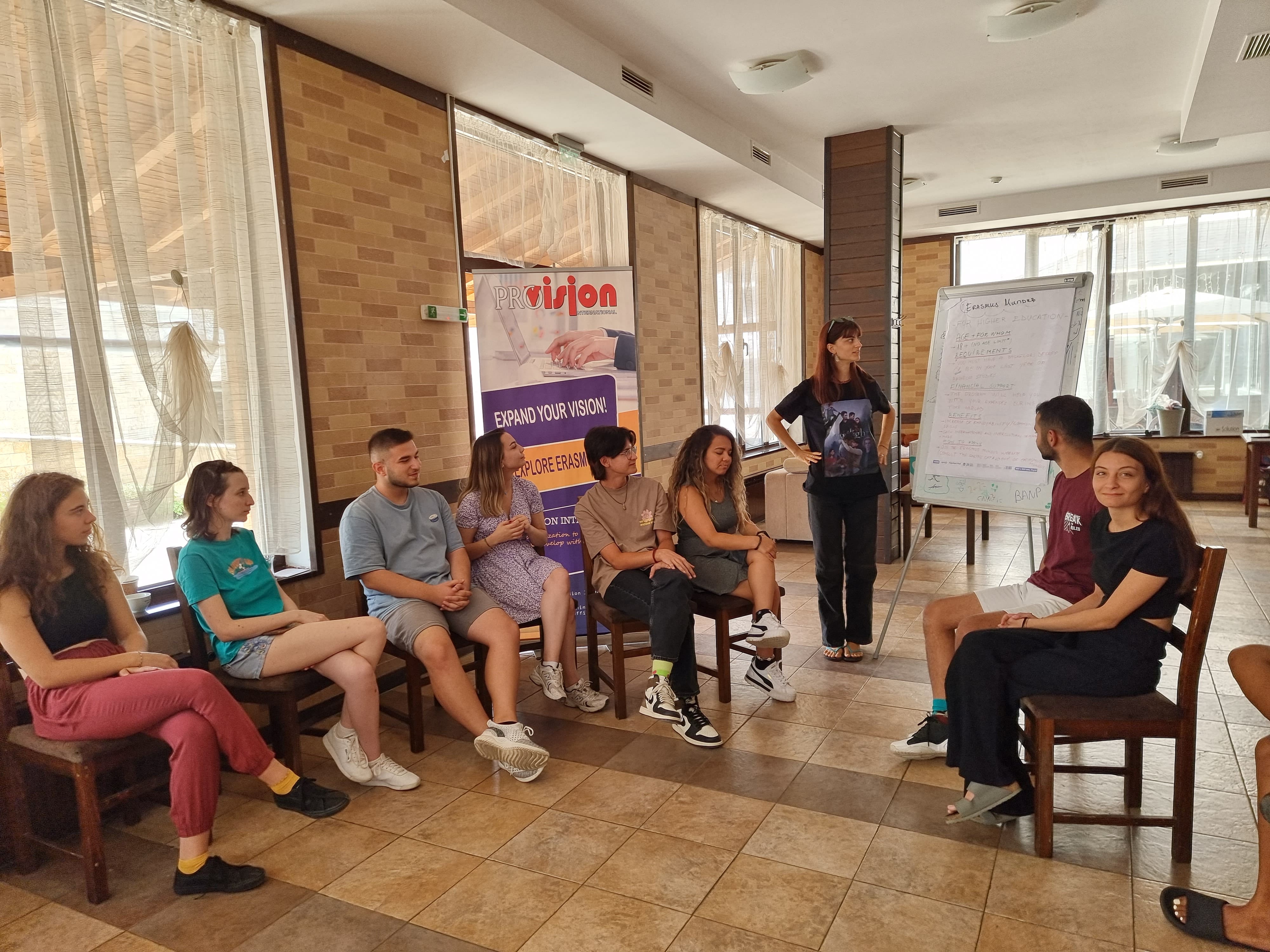As follow up activity, the participants created several articles which we are happy to publish:
Within the kaleidoscopic diversity covered by Erasmus+, human rights emerge as one of the paramount concerns which orients the purposive vision of the European Commission towards youth particularly in the spheres of formal, non-formal and vocational education. The crystallization of Erasmus+’s interest in youth participatory action is carried out through various means and includes variegated demographic strata dispersed over almost the totality of Europe, plus third countries associated to the program such as North Macedonia, Serbia, Iceland, Liechtenstein, Norway, Turkey. This article highlights one of the creative approaches adopted by Erasmus+ to foster the values of human right in European Youth. It will shed light on the value of performative arts, particularly theatre, in generating an artistic environment where youth learn as well as act their vision of human rights, and as such cultivate an atmosphere of empathy and intercultural understanding.
Over the past fifty years, performative arts have been deployed as key metaphors to rethink normative notions of selfhood, gender, masculinity, minorities, marginal communities, fine arts, culture and many other socio-economic and political issues. The brilliancy of adopting a theatrical approach to such issues resides in the fundamental principle of exposition i.e., the exposition of the case at hand, from a variety of different angles, leaving enough breathing space for the actors and the audience (in our case the participants) to build their own opinion s and decisions. The value of theatre as a medium to foster human rights in youth is manifested in its performative ability to break down and expose uneasy and complex matters (such as the speech, racism, gender discrimination, Islamophobia…) into lucid and understandable series of acts which can be easily fathomed, and whose effect could immediately be detected through changes in mood, emotions, bodily gesture and so on.
Additionally, the theatre constitutes a place where questioned are asked, ideas are formulated and embodied, assumptions, prejudices and stereotypes are critiqued, without reaching conclusions or judgments. As such, it is an effective tool fostering human values without being restrained by ideological bias. In its pursuit of the solidification of human rights, theatre can be seen as a means of stressing differences rather than dissolving similarities; it should emphasize civil confrontation rather than unwarranted agreement because it is by having the uneasy and difficult discussions that we, as a community, as a society, we progress towards real multicultural diversity. The experience of multiculturalism in Europe is struggling because, the push of multiculturalism happens merely at the legislative and political level, the theatre can be a means of advancing the values of diversity of the artistic and cultural level because the latter dimensions constitute a significant part of the fabric of society. Human rights can reach people through theatre in ways which remain unattainable to the highfalutin discourse of politics.
Last but not least, one of the cardinal elements which characterize performative arts such as drama, plays and theatre was conceptualized by the Greeks as Catharsis. To define it simply, Catharsis is the purification or purgation of the emotions (such as pity, fear, hatred…) primarily through art to brings about spiritual renewal or release from tension. In other words, the participants (performers and audiences) get to experience what is it like to be targeted by hate speech or racism vicariously; they get to see the detrimental effect of the prejudices and stereotypes which loom in their minds; and by the culminating end of the act, their feelings, attitudes and presuppositions are challenged through the variety of perspective which participatory theatre expose them to through performative narratives. The audience and performer are given a chance to purgate their consciousness from the prejudices they might have by means of witnessing and visually experiencing the consequences of such biased beliefs.
The utilization of theatre and performative arts in general to establish strong and educated youth communities which are driven by the pursuance of human rights unravels the philosophy which animates the totality of Erasmus+. It is a noble cause which pursued by various national agencies through various participatory means such as youth exchanges and training courses where various participants are brought together under the supervision of a facilitator or a trainer who enable them to generate self-learning from within their positive and negative past experiences, and by fostering and embodying an environment of safety and human civility.

